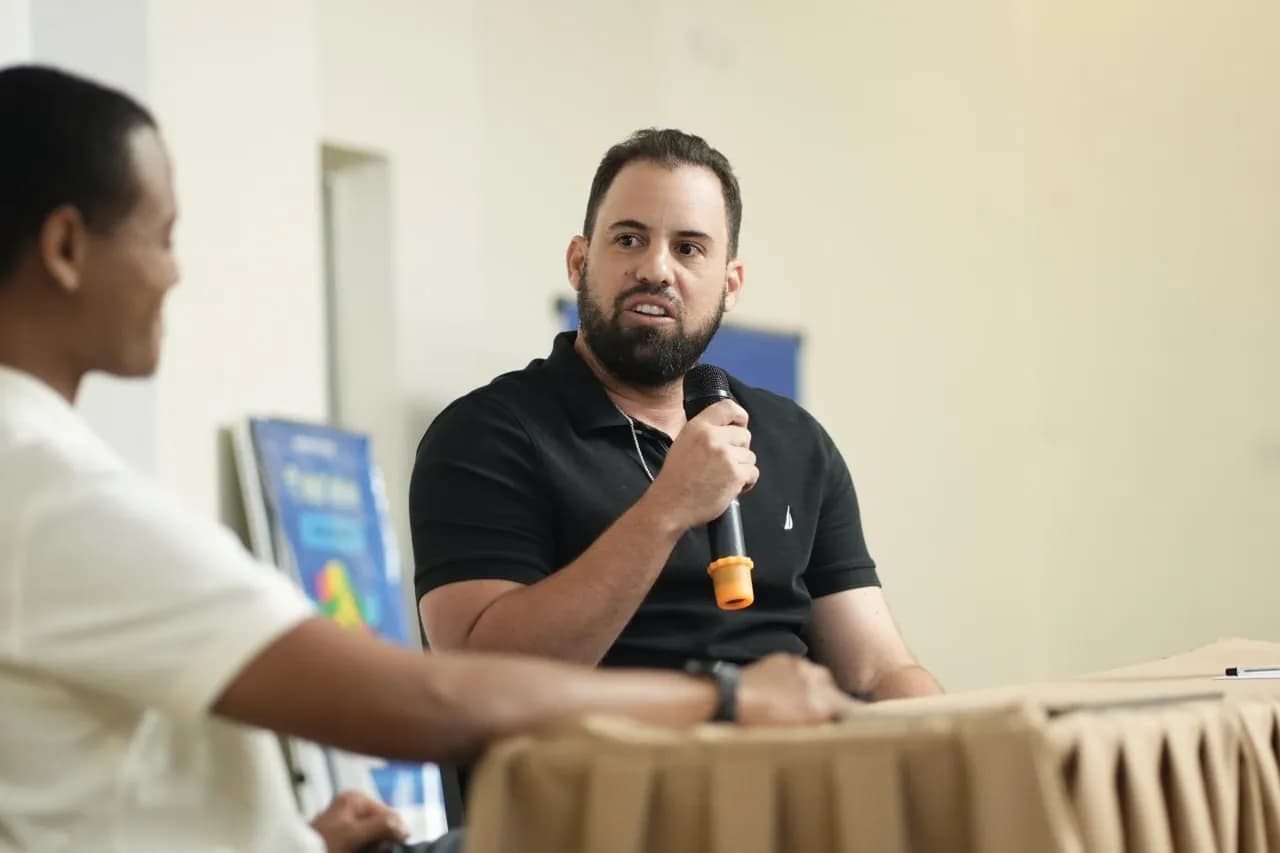Progress for 0 ad
Progress for 1 ad
Progress for 2 ad
Progress for 3 ad


Etenat Awol
Addis Ababa, Ethiopia

The UN International Trade Centre’s Netherlands Trust Fund V (NTF V) project is planning to expand its focus in Ethiopia to support policy development and institutional understanding of emerging technologies. AI, blockchain, Web3, and cryptocurrency mining are among the new areas of focus for the project, which has worked on MSME support, agribusiness, and digitization for the past four years.
Speaking at the “Unchained Ethiopia” event co-organized by BitcoinBirr and the UN’s NTF V project last week, Samuel Fekade, National Coordinator for ITC NTF V Ethiopia, outlined the potential path ahead. He said the project is seeking to engage with the private sector and government institutions around fast-evolving digital technologies.
“Our specific focus is on the private sector, particularly through a project this year centered on digital and emerging technologies,” said Samuel, who is also a director at the United Nations Association–Ethiopia (UNA-ET).
He indicated that amidst shifting global politics and development trends that the UN itself was transforming into what insiders refer to as UN 2.0.
Samuel pointed to the success of previous initiatives, such as formalizing the business process outsourcing (BPO) industry, as a model for how the UN hopes to engage with emerging tech. “A few years ago, there wasn’t even an Amharic term for BPO,” he recalled. “Now it’s a recognized sector generating revenue and jobs. We believe emerging tech is at a similar inflection point.”
The shift coincides with Ethiopia’s increasing appeal to global data and crypto infrastructure operators, particularly Bitcoin miners, attracted by affordable electricity and a low-cost skilled labor force.
Mohamad Khalife, CEO of BITCITY Data Center, has spent over a year building a 10-megawatt mining facility in Ethiopia. While his initial interest was prompted by cheap hydroelectric power, it was the labor force that guaranteed he would stay.
“When I arrived, I found the labor force pool to be unbelievably cheap,” he said. After posting a job ad for an electrical engineer, he received 80 applications in a week. “Out of those, I wanted to hire 20 immediately. People were extremely qualified on every level.”
BITCITY’s current operation, a 10-megawatt facility, houses approximately 2,200–2,300 servers. The investment for site development (excluding machines) runs $1.5–2 million, while the servers themselves are valued at $5–6 million. Monthly electricity costs for such a facility are around $220,000–$240,000, accounting for 80–90% of operational expenses. Each machine can generate about $10 a day, with roughly 70% of that revenue going to electricity costs, according to Mohammed.
Nevertheless, progress has been slower than initially expected.
“We were hoping to start with significantly more hundreds of megawatts but that’s not realistic in the short term,” Mohamad said.
Fragmented regulations, unintegrated agencies issuing permits, a lack of shared records, and convoluted bureaucratic channels have compounded difficulties for the CEO.
While Ethiopia is only recently opening itself up for crypto-mining’s potential gains, some countries have dipped their toes in earlier, only to develop a sour taste for the sector quickly.
Bernardo Medina, a Venezuelan miner who is planning to launch a $5 million facility in Ethiopia, had firsthand experience of the consequences of shifting policy orientations. As Venezuela was spiraling into hyperinflation in 2016, Bernardo had to make a critical decision. With his ice-cream factory ceasing operations, a friend recommended that he take advantage of a 300 KVA transformer lying idle and try out Bitcoin. While skeptical at first, Bernardo was surprised to see his Bitmain Antminer S4 churn out 0.3 BTC in 24 hours. It was then valued at $300.
By 2019, he was managing a Bitcoin mining company that operated seven facilities across the South American country, boasting nearly 30 megawatts of capacity. However, the rosy prospects wilted four years later following a government crackdown on all crypto facilities. His sites were raided, transformers seized, and personnel detained.
“Everything was gone in one day,” Bernardo says.
He is currently awaiting permits from the Ethiopian government to kick off a Bitcoin facility with long-term plans to invest up to $ 30 million.
“We hope to begin construction within two months of approval. The infrastructure will take another three to four months,” he told Shega.
Bernardo emphasized the importance of clear regulation and physical safety two major factors that influenced his decision to relocate from Venezuela to Ethiopia after facing a government crackdown.
While Ethiopia still prohibits cryptocurrency trading, the regulatory tide appears to be shifting. In June 2024, the Council of Ministers approved a draft proclamation to lay the groundwork for a Central Bank Digital Currency (CBDC), and the Ethiopian Investment Commission has reportedly licensed up to 27 crypto mining firms. However, two weeks ago, Ethiopian Electric Power announced that it will no longer accept new cryptocurrency companies, indicative of a jittery legal landscape.
Bernardo made it clear that regulatory clarity was a precondition for serious investment: “It’s not about the cheap power only. It’s about predictability. If I can’t predict the environment, I’m not plugging in a single miner,” he stressed.
👏
😂
❤️
😲
😠

Etenat Awol
Etenat holds a degree in Journalism and her master's in Public Relations. Previously, she served as a university lecturer and has five years of experience in communications, media, digital marketing, and consulting.
Your Email Address Will Not Be Published. Required Fields Are Marked *